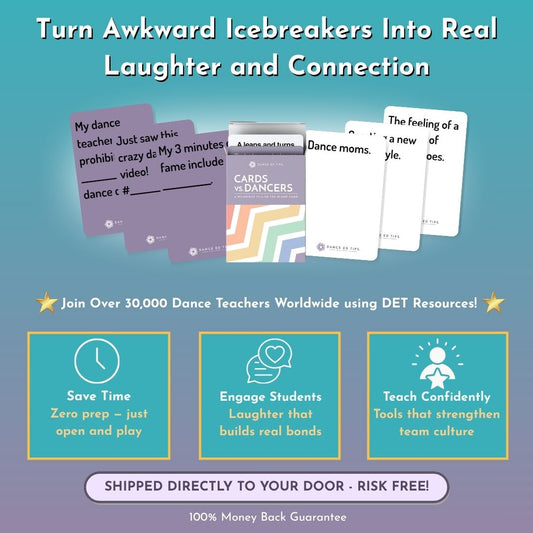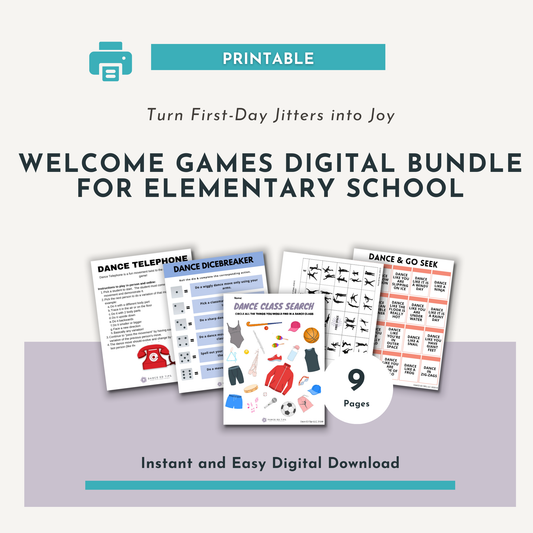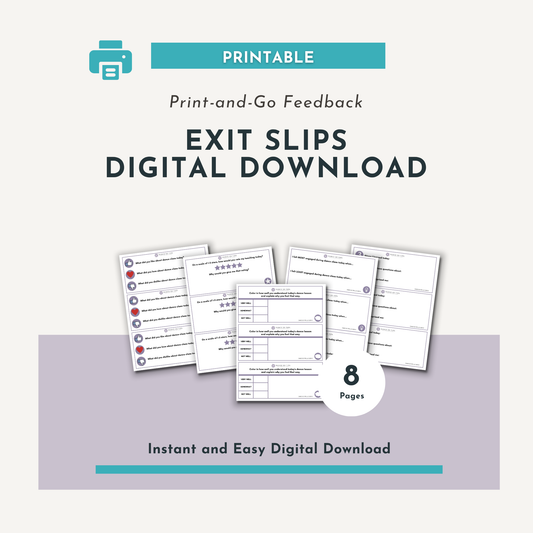By: Jessica Baudin-Griffin
The caregivers of your precious little preschool dancers? They are feeling mighty nervous right now.
I always expect the caregivers of my youngest dancers to be nervous at the beginning of a new dance year.
This could be the first time their baby is taking an un-parented class.
This could be the first time they are attending your studio or school.
This could be the first time their child has you as their teacher.
Now on top of those normal worries, caregivers are tackling what education look like for their young child during a global pandemic.
As a Mom myself... I get that fear.
This is why for the coming dance season it is more imperative than ever to nurture the TRUST of caregivers whose children you teach.
This is why my second tip for a successful upcoming year of dance is to lean into Caregiver Education. Regardless of if you are moving into physically distanced, online or blended dance class delivery, focusing on caregiver education will decrease stress for everyone, nurture trust, and increase resiliency.
Strategy 2: Caregiver Education
I’ve always believed that the most successful early childhood dance teachers deeply understand that caregivers must be considered our teaching partners. Primary caregivers play the most important role in young dancers lives and, as such, we all need to be on the same team.
I have found the most successful way to get caregivers on my side, is by empowering them through education. My role as their child’s early childhood dance educator is to be the expert in child development, to implement dance curriculum that supports their child’s development, and finally to share my expertise with caregivers on how my classes and curriculum are supporting their child’s holistic development directly.
Caregivers don’t necessarily connect the fun of Freeze dance to important physical, cognitive, and social-emotional development. As the education expert, I act as the translator, communicating to caregivers the impactful ways we have FUN on purpose in the early childhood dance!
Sharing child development and dance education in a quick and engaging manner shows your dancer's caregivers you are an early childhood expert with their child's best interest at heart.
Remember, caregivers are busier and more overwhelmed than ever before, so avoid sending out lengthy emails or communication written with academics in mind. The majority of caregivers are not going to read these documents. Instead, create bite size, blurbs of developmental and educational information, presented in engaging and simple formats, such as one-page handouts, social media posts, or a short weekly email update.
This strategy puts caregivers at ease. This strategy develops caregiver trust. This nurtures positive relationships and communication between you and your dance families! Connections with both your little dancers and their caregiver should be one of our core values moving into a new season of dance in our new normal.
Don’t have time to create your own caregiver education content prior to the start of the dance season? Be sure to check out the new Back to School Early Childhood Kit now available in the shop!
Click HERE to view the
Back to School Kit: Early Childhood Starter Pack

Jessica Baudin-Griffin (B.Ed) is an award winning movement educator from Edmonton, Alberta. In 2006, Jessica founded J'Adore Dance, an award winning, recreational dance studio, where she created more than a dozen original dance programs, including the Intellidance® Method, a series of early childhood in creative dance and music programs for babies to children age 5.
The foundation of the Intellidance® Method is the combination of dance and music concepts, identifying specific vocabulary in dance and music, and developing the understanding of both through the connection between concepts. These connected concepts provide opportunities for children to explore, discover, practice, and create using multiple senses and intelligences. By addressing the possibilities and connections in dance and music, the Intellidance® Method provides an innovative approach to conceptual education and addresses the needs of learners and teachers in the 21st century.
Jessica has had the pleasure of training a wide variety of professionals in the Intellidance® Method and is always excited to see the new ways her students are implementing the Intellidance® Method in their professional practices. The Intellidance® Method is currently used in over 30 countries worldwide!
Jessica has worked as K-6 Dance and Music specialist, sat on the committee that developed the K-12 local dance curriculum for Edmonton Public Schools, and is a sessional lecturer at the University of Alberta, teaching The Study of Dance for Young Children. Jessica’s life work is to advocate for dance for every child!





